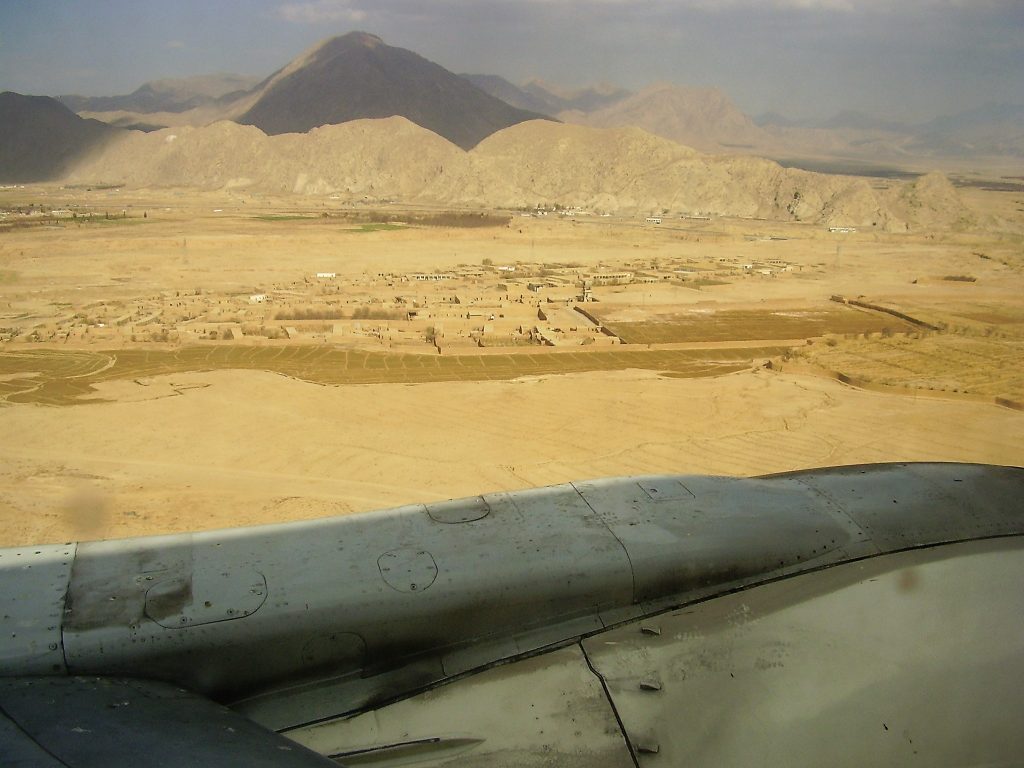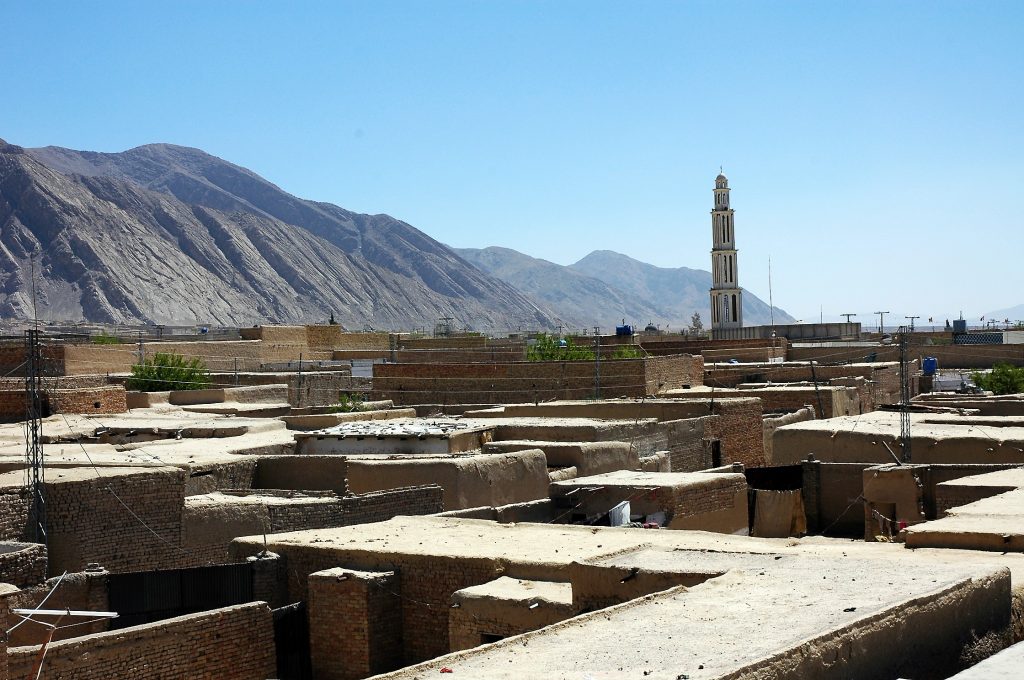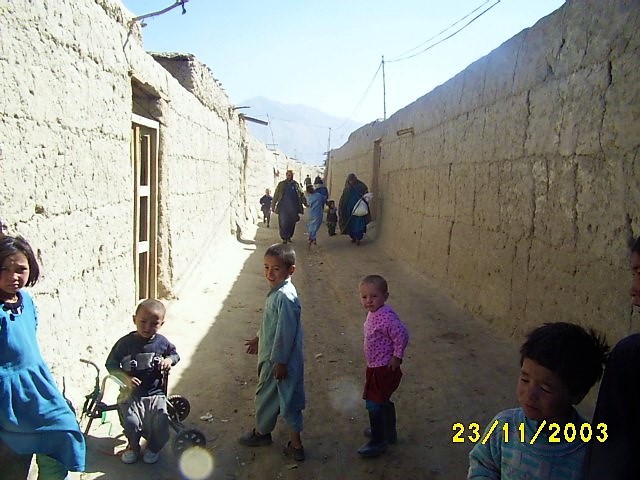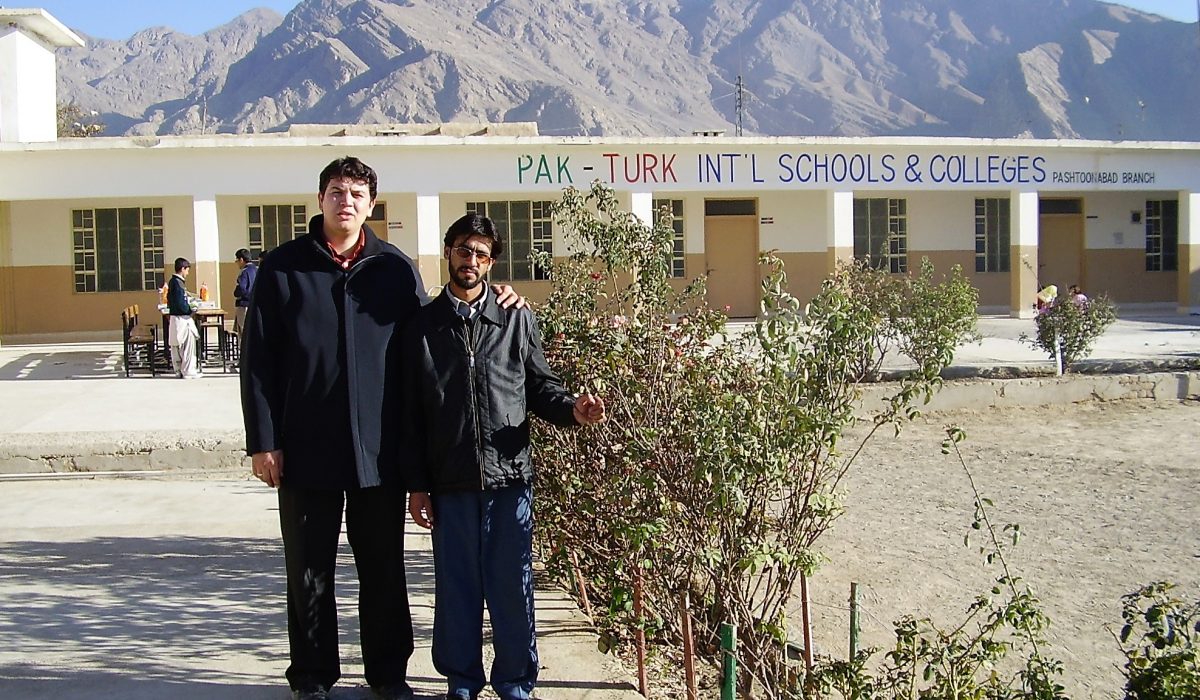A Turkish school in the deserts of Balochistan and Pashtun students

Daily life in Khairpur Mirs: Full of challenges and quirks…
June 12, 2021
Turkish Teacher Ayşegül Karahan (2): I wished my children to grow up in Pakistan
June 15, 2021Educator Taner Koçyiğit continues to narrate about his life in Pakistan. In the eighth part of his memoirs, he narrates his experiences in Quetta, his new place of duty in the deserts of Balochistan, and the PakTurk School there.
Part Eight:
It had been nine months since I came to Pakistan and I was waiting for news to change my city for the third time. After the unforgettable months I spent in Attock and Islamabad, I learned about my appointment to Quetta, in the southwestern part of the country, close to the Afghan border. Quetta was the capital of Balochistan province and a city where bombs used to explode frequently due to the diversity of ethnic groups there.
We had two schools in Quetta. One of them was the school in Chaman Housing Society, consisting of two repurposed bungalows. The other one, that is, the school I was going to, was located in Pashtunabad where a school building was allocated to our Foundation by the Government of Balochistan. This building had undergone renovations and repairs. Of course, I never wondered which job I would do at which school because I wanted to start working again as soon as possible.
We had to leave the house before settling in it
On January 21, 2004, I said goodbye to my friends in Islamabad and flew to Quetta. The house where we stayed was rented right next to the school in Chaman Housing Society. I was staying with late Ali Kırkgeçit, Mehmet Emin and a few other friends there. It had been a few days since I had just come to Quetta and I was planning to settle in that house, when my friends told me we had to leave the house in a few days. It turned out that the owner of the house would settle there himself and he gave us a very short time to find a new house.

Friends working at Chaman Housing would leave the house in the morning and walk 50 meters to their school, but the school we worked at was quite far from home. Rather than its distance, the difficulty was in finding a transportation there. I understood the reason for this on the first day we went to school a few days later. None of us had a car and cars were available at very affordable prices, but our financial difficulties did not allow even that.
The rickshaw drivers would reject going to the school’s district.
On the first day, we stopped a motor rickshaw to go to our school. We told the driver we were going to Pashtunabad. The driver simply said, “No! I can’t go, I have work elsewhere!” We stopped another rickshaw, and the driver gave the same excuse. We stopped a few more rickshaws; eventually one of the drivers said, “I’ll go, but you have to pay more.” When we asked why, he said, “Pashtunabad is a very dangerous place, so you cannot find anyone to go there. I’ll go, but you have to pay more for me to take the risk.” It turned out that the neighbourhood where our school was located was a quarter even the police could not easily enter.

Our school was right in the middle of a quarter where people who immigrated from Afghanistan and were a bit involved in crime lived. The school building was originally built by the government as a girls’ high school. However, the school remained idle because no one in the neighbourhood sent her daughter to school. As such, the use of the building was transferred to our Foundation by the Balochistan government.
All of the students were Pashtun children
There were almost no reinforced concrete buildings on the street of our school in Pashtunabad, except for the school building. All the houses had garden walls made of earth 3-4 meters high and, of course, open sewer channels. The Pashtunabad quarter was established years ago as a camp site for refugee families from Afghanistan to stay. However, the refugees, who saw that the political situation in Afghanistan was not likely to improve, built their own mud brick houses there permanently. Over time, it turned into a big neighbourhood. After it became clear that those who came would be permanent, the government thought of the need for school and built our school building at the top location of the neighbourhood. The word Pashtun is already the name of the ethnic group that makes up the majority of Afghanistan. Pashtunabad also means ‘Pashtun place’. Due to the location of our school, almost all of our students came from that ethnicity.

Are we going to barbecue every day with this much coal and wood?
When I arrived at the school, preparations had to be made for the upcoming school year. The school building was actually a very beautiful structure. The indoor gymnasium and all the other facilities that the students would need were considered. In the list prepared to meet the needs of the school, it was written that a lot of wood and coal should be purchased. Of course, I could not understand and asked, “What are we going to do with so much coal and wood? Are we going to have a barbecue every day?” It turned out that since the school did not have a heating system, the janitors would come early in the morning and light fires in tins looking like barbecues and put two in each class.
In general, very hot weather and humidity prevail in Pakistan. Thanks to the monsoon rains, most cities are in lush green, arable and wetlands with large rivers. Quetta was unlike any other part of Pakistan in these aspects. Quetta had an altitude of about 1,700 meters and had serious natural water supply problems. It was like a desert on top of the mountains. There were hardly any trees in the city. In addition, Quetta is geographically outside the sub-continent. Among the cities where our school was located, the only place where it snowed was Quetta. Although it was very rare, it would be seriously cold in winter and the temperature would drop to minus 15 degrees. Therefore, heaters were seriously needed. That need was met with barbecues at our school in Quetta. The janitors would enter the classrooms once in a while and stoke the fires.
To be continued…
***
Part Seven: The fruitful reading retreat in Khairpur Mirs and the next place of duty





No Comment.